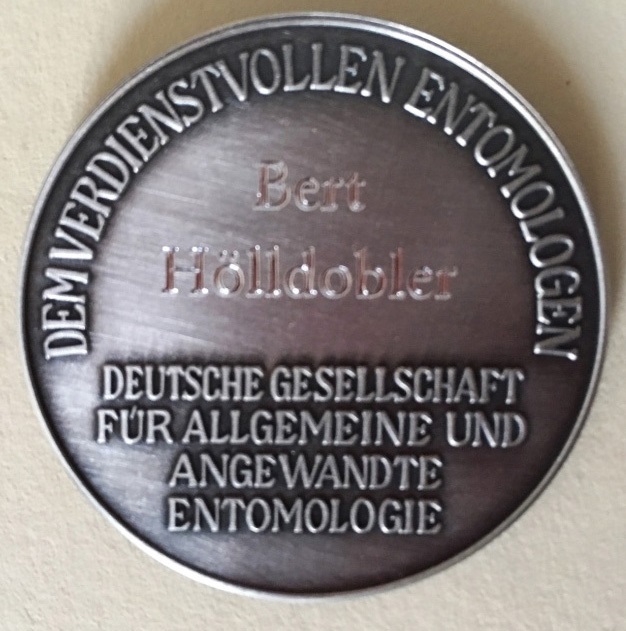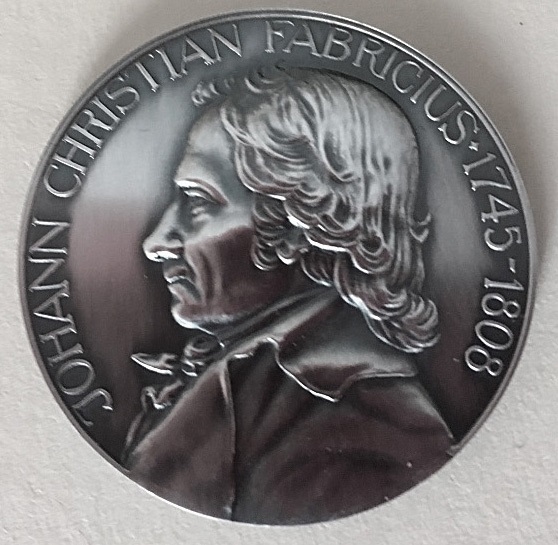ASU professor earns German entomological society's highest honor

ASU School of Life Sciences Regents' and Foundation Professor Bert Hölldobler earned the Fabricius Medal for lifetime scientific achievements from the German Entomological Society. Photo by ASU
Bert Hölldobler, Regents’ and Foundation Professor with Arizona State University's School of Life Sciences, recently earned the German Entomological Society’s most prestigious award, the Fabricius Medal.
Every two years, one person is selected to receive the society’s highest honor for their lifetime scientific achievements.
Though Hölldobler considers himself a behavioral ecologist and physiological ecologist rather than an entomologist, he flew to Halle, Germany, to deliver the opening lecture at the Congress of the German Entomological Society and receive the award, which recognized his "outstanding scientific contributions in the field of behavioral physiology and sociobiology, in particular his pioneering work to our understanding of the behavioral ecology and social behavior of ants.”
The society also recognized his outstanding achievements in science communication to the public.
Hölldobler’s lecture recorded the largest attendance for that conference, according to the president of the society, and was broadcast on German radio.
Known as one of the world’s experts in insect social behavior and ecology, Hölldobler taught at Harvard and Cornell before joining the School of Life Sciences in 2004. In addition to his more than 325 scientific publications, Hölldobler has written several books, including “The Ants” and “The Superorganism” with E.O. Wilson. Hölldobler and Wilson were awarded a Pulitzer Prize in 1991 for “The Ants.”
“I was very pleased to receive this recognition,” Hölldobler said. “I was especially pleased that my work as a public communicator was mentioned too, because I firmly believe we scientists need to communicate our findings not only to the scientific community, but also to the general public.”
The Fabricius Medal is named after Johan Fabricius, an 18th-century Danish entomologist who is responsible for identifying and naming more than 9,500 insects, more than any other entomologist.
More Science and technology

ASU-led Southwest Advanced Prototyping Hub awarded $21.3M for 2nd year of funding for microelectronics projects
The Southwest Advanced Prototyping (SWAP) Hub, led by Arizona State University, has been awarded $21.3 million in Year 2 funding…

Celebrating '20 Years of Discovery' at the Biodesign Institute
Editor’s note: The Biodesign Institute at Arizona State University wraps up its 20th anniversary with the sixth and final…

Student research supports semiconductor sustainability
As microelectronics have become an increasingly essential part of modern society, greenhouse gas emissions, which are associated…

